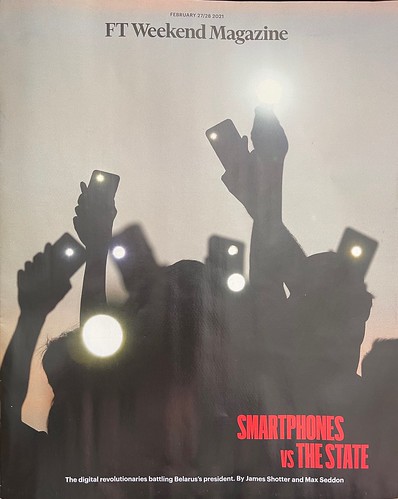HSBC bank
China and the UK test HSBC Bank divided loyalties in Hong Kong — Quartz – If HSBC Bank were to spin off its China operations, it wouldn’t be the first bank to reconfigure its ties due to a changed political situation. In the 1980s, the British banks Barclays and Standard Chartered pulled out of direct operations in South Africa amid global pressure against the apartheid regime. The bank’s actions “highlighted…the fact that financial institutions were not unassailable when faced with public pressure on ethical issues. HSBC Bank is betting that the screwing China will give it is still better than the west, more from the FT here: HSBC Bank shifts ‘heart of business’ to Asia in latest strategy revamp | Financial Times
Huawei’s CFO Meng Wanzhou takes HSBC to court in Hong Kong to seek access to bank’s internal papers – HSBC might not want this one to go to court. Possible clash with Chinese law on imposing unjust penalties. But if it goes ahead HSBC faces western sanctions. More related content here.
China
Book Review: Rural Youth Key to China’s Human Capital Crisis – Caixin Global – Rural China is so systematically neglected that it has become nearly invisible not only to most outside observers but even to urban elites within China. But this “invisible” part of China will determine its economic future. Instead of sitting in an ivory tower advising Chinese officials what to do, the authors and their team at Stanford University’s Rural Education Action Program (REAP) have been helping China’s rural youth on the ground in practical and realistic ways
Exclusive: Scientists at top British universities worked with Chinese nuclear weapons researchers – Scientists at Britain’s leading universities – including Cambridge, Edinburgh and Manchester – have worked on a string of projects with researchers at China’s nuclear weapons research institution – it doesn’t necessarily mean that they were helping the Chinese build a new generation of warheads but its not a good look
Consumer behaviour
Cultural Differences May Affect The Outcome Of A Pandemic: New Research : Goats and Soda : NPR – Tight cultures tend to have had a lot of threat in their histories from Mother Nature, like disasters, famine and pathogen outbreaks, and non-natural threats such as invasions on their territory. And the idea is when you have a lot of collective threat you need strict rules. They help people coordinate and predict each other’s behavior. So, in a sense, you can think about it from an evolutionary perspective that following rules helps us to survive chaos and crisis
Notice, Shift, and Rewire: Starting the Journey to Dismantle White Supremacy | by Anna Madill | Feb, 2021 | B The Change – interesting read. What struck me is how much this goes against efficiency and effectiveness in terms of everything one would have been taught in business management, to focus on what I’d call internal quality. It is predicated on a sufficiently slow rate of environmental change / client demands in order to allow this to happen. It is an ideal work environment (and I don’t mean that in the terms that they define it) but in a more general sense. It goes against the grain of the observations of James Gleick in his work Faster
Culture
How we made Theme from S-Express | Pop and rock | The Guardian
Design
The US Air Force Quietly Admits the F-35 Is a Failure – ExtremeTech – its unreliable and doesn’t meet their expectations
French law forces Apple to display repair scores alongside its products – not the same as the right to repair. Presumably if other countries in the EU followed this, it would force changes in the design process, though I am less convinced with Apple
Energy
Interesting how there is a groundswell of activity against the energy dead-end of reliance on Li ion batteries. Porsche Says Its Synthetic Fuel Could Make Gas-Powered Engines as Clean as EVs | Robb Report
FMCG
Celebrating Lunar New Year: Filling Up on Food, Family and Content – Nielsen – really useful stats in here
Hong Kong
Hong Kong citizens are being thrown in jail because of old British law | Business Insider – how British colonial law is being used against Hong Kongers by their government
Luxury
Rihanna and LVMH shut down Fenty Fashion House – CNN Style – not terribly surprising, a lot was being asked of the label
Why L Catterton and Financière Agache snapped up Birkenstock | Vogue Business
Franck Muller’s Newest Watch Doubles as a Bitcoin Wallet, and You’ll Need Cryptocurrency to Buy It – for the tech bro that has everything
Famous for Partying, Alexander Wang Could Become Infamous | New York magazine – fashion has a me too moment
Security
Finnish IT Giant Hit with Ransomware Cyberattack | Threatpost
Checkout Skimmers Powered by Chip Cards — Krebs on Security – the ingenuity that goes into these designs is impressive.
Technology
Connected Cars: Show Me The Money | EE Times – I am surprised that ad tech doesn’t feature this as data that they pull in
Deepfake videos of Tom Cruise show the technology’s threat to society is very real | Input Magazine – perfect excuse for every political sex tape that drops in the future
GitHub – igorbrigadir/twitter-advanced-search: Advanced Search for Twitter. – grokking Twitter
Signal Stickers – some of these clearly violate IP
Telehealth could be great in the post-pandemic world.
The Right Instagram Hashtags for Any Topic with One Click – Fanbase Karma blog

